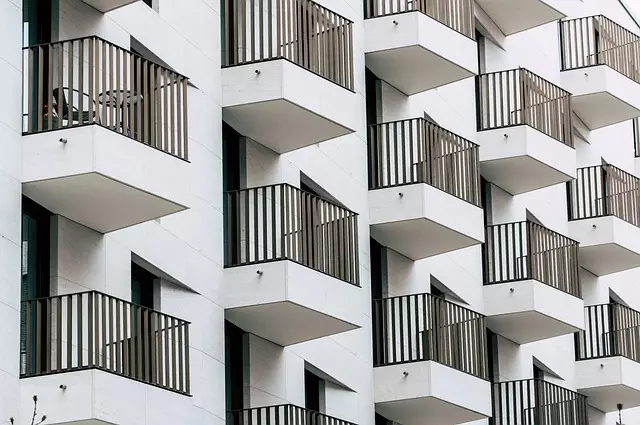House sitting is a key service within comprehensive home care, offering a secure and maintenance-focused alternative for individuals temporarily leaving their homes. This service ensures continuity of daily living activities, including household upkeep, pet care, and safeguarding personal belongings. Trained professionals handle these responsibilities in the absence of clients, maintaining privacy and integrity of the home while managing utility services and offering additional support as needed. It blends with in-home health care to provide a cohesive support system for those with cognitive challenges like dementia, offering comfort upon return. Personalized assessments are crucial in tailoring house sitting solutions to individual needs, ensuring the level of care is appropriate for each client's health condition and personal choices. House sitters also play a vital role by safeguarding homes against intruders, protecting structures and contents, conducting regular maintenance, and responding to emergencies, thus preserving property integrity and value. This service is particularly beneficial for seniors wishing to age in place, as it allows them to maintain independence with the necessary support, enhancing their quality of life while providing peace of mind to their loved ones. House sitting serves as a flexible and comprehensive care option within the home care landscape, offering a secure and well-maintained living environment for those who need to be away from their homes temporarily.
Home care services are increasingly embracing house sitting as a pivotal component of comprehensive care plans. This article delves into the nuances of professional home care, highlighting how tailored house sitting solutions cater to diverse client needs. Explore the multifaceted role of house sitters, their responsibilities, and the positive impact on routine maintenance, safety, and security within the homes of those they serve. Through case studies and expert insights, we will uncover the transformative effect of house sitting within the realm of home care services. Join us as we shed light on this critical aspect of eldercare and personal assistance, ensuring a seamless blend of independence and support for clients in their own familiar surroundings.
- Understanding the Role of House Sitting in Professional Home Care Services
- Assessing the Needs: Tailored House Sitting Solutions for Various Client Profiles
- Comprehensive Responsibilities of a Trusted House Sitter
- The Impact of Consistent Routine Maintenance Through House Sitting
- Safety and Security Measures Enhanced by Professional House Sitting Services
- Case Studies: Successful House Sitting Arrangements in Home Care Scenarios
Understanding the Role of House Sitting in Professional Home Care Services

House sitting plays a pivotal role within the spectrum of professional home care services, serving as a foundational element that supports the overall well-being and safety of clients. When seniors or individuals with specific needs require temporary absence from their homes for medical procedures, travel, or short-term personal reasons, house sitting ensures the security and maintenance of their living spaces. Certified professionals who specialize in this area are trained to manage daily routines, from household chores to pet care, thus providing peace of mind to both clients and their families. These caregivers act as surrogate residents, safeguarding valuable possessions, maintaining utility services, and upholding the privacy and security of the home. Furthermore, they are often equipped to offer additional care services as needed, creating a seamless continuum of support that complements in-home health care. This multifaceted approach to house sitting within professional home care services is crucial for preserving the client’s lifestyle and maintaining their home environment while they are away. It allows for a consistent and familiar living situation upon their return, which can be especially beneficial for those with dementia or other conditions that thrive on routine and stability.
Assessing the Needs: Tailored House Sitting Solutions for Various Client Profiles

When considering professional home care services, a comprehensive assessment of an individual’s needs is paramount to deliver tailored house sitting solutions. These assessments are designed to understand the unique challenges and requirements each client profile presents. For instance, seniors may need assistance with daily activities such as meal preparation, medication management, and mobility within their homes. In contrast, individuals recovering from surgery or managing a chronic illness might require more specialized care, like nursing support or rehabilitative therapy. House sitting services adapt to these diverse needs, ensuring that the provided care aligns with each client’s health status and personal preferences. The goal is to maintain the client’s independence and quality of life while providing peace of mind for their loved ones. These bespoke solutions are delivered by trained professionals who can offer everything from a few hours of companionship to round-the-clock care. By leveraging a flexible service model, these home care providers can cater to a wide array of clientele, making house sitting an indispensable aspect of the home care landscape.
Comprehensive Responsibilities of a Trusted House Sitter

When entrusting the care of your home to a house sitter, you are assigning them comprehensive responsibilities that extend beyond mere occupancy. A trusted house sitter acts as a steward for your property, ensuring its security and upkeep while you are away. This role involves vigilant surveillance against potential intruders, safeguarding valuables, and maintaining a routine presence to deter theft or vandalism. It’s not just about locking doors; it encompasses monitoring alarms, keeping the property’s exterior tidy, and managing mail and package deliveries to prevent accumulation that might signal an empty home.
In addition to security measures, house sitting also requires the sitter to manage daily tasks within the residence. This includes watering plants, caring for pets or livestock, and maintaining a comfortable living environment by adjusting thermostats to conserve energy. They must be adept at appliance operation and familiar with the home’s systems to address any minor issues that may arise during their tenure. A trusted house sitter is someone who can handle unexpected challenges with discretion and resourcefulness, ensuring that your home remains a safe haven in your absence. Their responsibilities are multifaceted, demanding attention to detail, responsibility, and a commitment to preserving the integrity of your home.
The Impact of Consistent Routine Maintenance Through House Sitting

Engaging in consistent routine maintenance through house sitting plays a pivotal role in upholding the longevity and integrity of a residential property. House sitters provide a reassuring presence that deters potential intruders, ensuring the safety of the dwelling when it’s unoccupied. This proactive approach not only secures valuables but also safeguards the structure from environmental factors that could cause damage over time. By regularly inspecting and maintaining home systems such as HVAC, plumbing, and electrical, house sitters can prevent minor issues from escalating into costly repairs. Moreover, their attentiveness to the property allows for timely interventions, which can preserve the overall condition of the home. This maintenance routine contributes significantly to reducing long-term repair costs and maintaining a comfortable living environment upon the homeowner’s return.
Furthermore, professional house sitters often perform tasks that go beyond security and upkeep. They may manage mail and package deliveries, water plants, and ensure that the property’s exterior remains well-kept, which is crucial for maintaining curb appeal. This level of care can be particularly beneficial for homeowners who are frequently absent due to work or travel commitments. By opting for house sitting services, these individuals gain peace of mind, knowing their home is not only secure but also being cared for as if they were in residence. The impact of such consistent routine maintenance through house sitting is undeniable, offering both practical and emotional benefits for property owners.
Safety and Security Measures Enhanced by Professional House Sitting Services

When individuals embark on extended travel or require temporary absences from their homes, professional house sitting services offer a robust solution to maintain safety and security. These services are staffed by vetted professionals who provide a watchful presence within the home, deterring potential intruders and safeguarding personal belongings from theft or damage. The peace of mind that comes with such attentive care is invaluable for homeowners, as these trained sitters undertake regular visits, perform routine maintenance tasks, and ensure that the property remains in optimal condition. Additionally, they can assist with emergency response, acting as a first line of defense should an issue arise. By choosing a reputable house sitting service, clients gain the assurance that their home is not only secure but also cared for as if they were residing there. This level of vigilance and attentiveness is paramount in protecting one’s residence while away, making professional house sitting a wise choice for those seeking security and serenity during their absence.
Case Studies: Successful House Sitting Arrangements in Home Care Scenarios

House sitting has emerged as a viable option within home care scenarios, particularly for individuals who prefer to age in place but require assistance with daily activities. A notable case study illustrates this point effectively. Mrs. Thompson, at 78 years old, chose to remain in her long-time family home rather than move to an assisted living facility. Her adult children were concerned about her living alone but respected her decision. They arranged for a professional house sitter who provided companionship, managed her household tasks, and ensured her safety. This arrangement allowed Mrs. Thompson to maintain her independence while having the support she needed. The house sitter, trained in home care services, was instrumental in creating a safe and comfortable environment. This case exemplifies the benefits of house sitting as a home care solution, demonstrating how it can successfully blend independence with necessary support, leading to a fulfilling living situation for the elderly.
Another example is the Williams family, who employed a house sitter for their parent, Mr. Williams, after he experienced a minor stroke. The house sitter was not only there to assist with his rehabilitation exercises but also acted as a liaison between Mr. Williams and the healthcare professionals involved in his care. This seamless coordination ensured that Mr. Williams received consistent care and could rely on a familiar face in his home, which significantly reduced stress and facilitated a smoother recovery process. These case studies underscore the effectiveness of house sitting in home care arrangements, highlighting its role as a solution that promotes dignity, autonomy, and personalized care for seniors.
Home care services are increasingly embracing the role of house sitting as a cornerstone of comprehensive patient care. This article has delineated the multifaceted nature of house sitting, from assessing individual client needs to maintaining consistent routines and ensuring robust safety and security protocols. The case studies presented underscore the effectiveness of these services in enhancing the quality of life for those under home care. As the demand for such personalized and attentive care grows, professional house sitting will undoubtedly become a more integral component of the home care landscape, providing peace of mind to clients and families alike. The integration of house sitting into the broader spectrum of home care services marks a significant advancement in the field, with tangible benefits for those who rely on these vital support systems.


